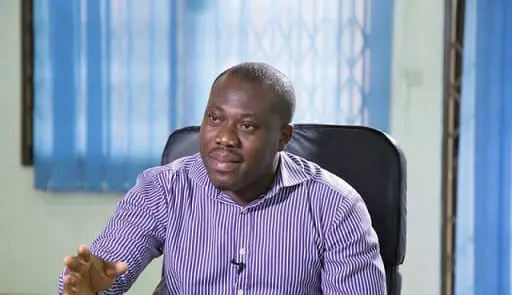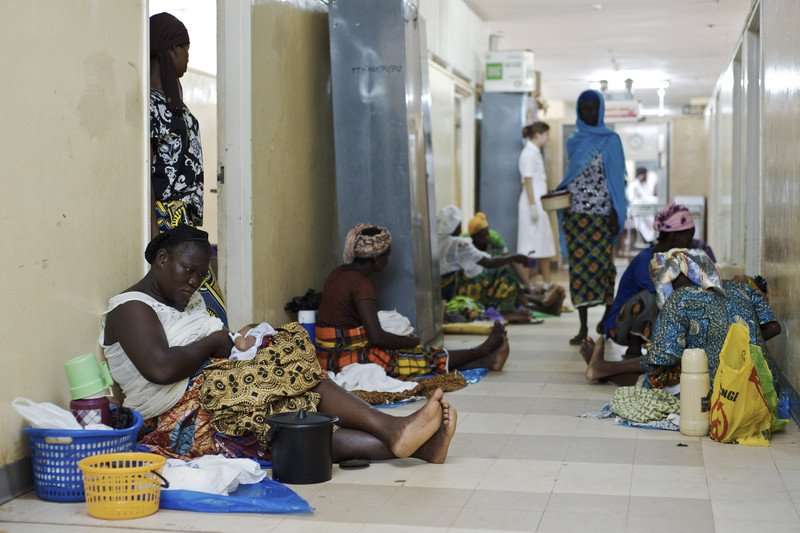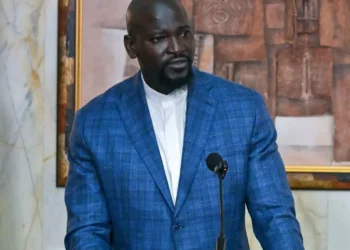Medical negligence has become one of the most pressing challenges confronting Ghana’s health sector, raising difficult questions about accountability, patient safety, and the sustainability of healthcare services.
The issue, while not unique to Ghana, has taken on particular urgency given the weaknesses in the country’s health infrastructure and funding systems.
Dr. Justice Yankson, former Vice President of the Ghana Medical Association, believes that any serious discussion about medical negligence in Ghana must go beyond blaming health professionals.
He stressed that many of the negligence cases currently being reported are not only the result of human error but also stem from systemic failings that continue to plague the sector.

“[It is] the outdated equipment, the lack of equipment, the lack of facilities, the lack of sometimes basic things like running water that actually increase the risk of hospital-acquired infections because doctors, nurses cannot even get basic things like water to wash their hands and keep the basic hygiene that is needed.”
Dr. Justice Yankson
According to him, these problems create an environment where lapses in care are far more likely to occur, even among highly skilled medical professionals.
For this reason, he argued, the problem of negligence in Ghana must be understood as part of a much larger health system crisis.
Healthcare Investment Needed To Curb Medical Negligence
Dr. Yankson further explained that healthcare delivery in Ghana cannot be improved unless the country takes a more deliberate and realistic approach to funding.
He stressed the need to “go back to the drawing board” and accept that healthcare is expensive, and as a nation, prioritizing it is no longer optional.
He noted that Ghana’s budgetary allocations for healthcare remain far below both global and regional benchmarks. This gap in investment has created significant deficits not only in facilities but also in staffing, training, and systems that would otherwise help reduce negligence.
“We are nowhere near the percentages of our GDP that we ought to allocate towards healthcare provision, whether at the Equal Rights or West African level, the global level, and what have you.”
Dr. Justice Yankson

For Dr. Yankson, closing this gap requires doubling efforts and deliberately strengthening health institutions across the country. In his view, issues of negligence will persist unless both professional practices and institutional systems are improved.
While negligence is a serious concern in Ghana, Dr. Yankson emphasized that it is not unique to the country. In fact, he explained, medical malpractice is “woven into the practice” of healthcare everywhere in the world.
He argued that even in advanced countries with state-of-the-art facilities, negligence and errors are reported on a daily basis.
“Medical negligence or medical errors are part of medical practice in every country you visit in the world,” he said, adding that the United States, despite having some of the best medical services globally, also records some of the highest numbers of malpractice cases.
He noted that in the U.S., it is common to find television and online advertisements from lawyers encouraging people to pursue negligence claims.
This, he explained, highlights that Ghana’s struggles with malpractice are part of a global trend rather than an isolated phenomenon.
Defensive Medicine And Its Costs
Dr. Yankson also highlighted how the rise of malpractice cases has led to a phenomenon in developed countries known as defensive medicine.
In places like the United States, he explained, health professionals often go to great lengths to avoid even the smallest error that could expose them to lawsuits.
“So, you visit the hospital and you do a barrage of investigations that sometimes might be seen as unnecessary, but they don’t want to leave room.”
Dr. Justice Yankson

While this may protect medical professionals from lawsuits, it has also increased the overall cost of care. Patients, he argued, ultimately bear the brunt of this system through expensive procedures and tests, some of which may not even be medically necessary.
For Ghana, Dr. Yankson believes the lessons are clear. Negligence and errors cannot be completely eliminated, but deliberate investments and reforms can help minimize their occurrence.
At the same time, he cautioned against overlooking the systemic challenges that fuel negligence in the first place, from outdated facilities to inadequate funding.
Ultimately, he maintained that tackling medical negligence requires both accountability and stronger support for health workers who operate in under-resourced environments.
While malpractice may be an unavoidable reality of global healthcare, Ghana, he argued, has the opportunity to reduce its prevalence and protect patients more effectively—if leaders choose to act.
READ ALSO: Turnover on GSE Soars by 199% as Trading Volume Jumps 192%



















